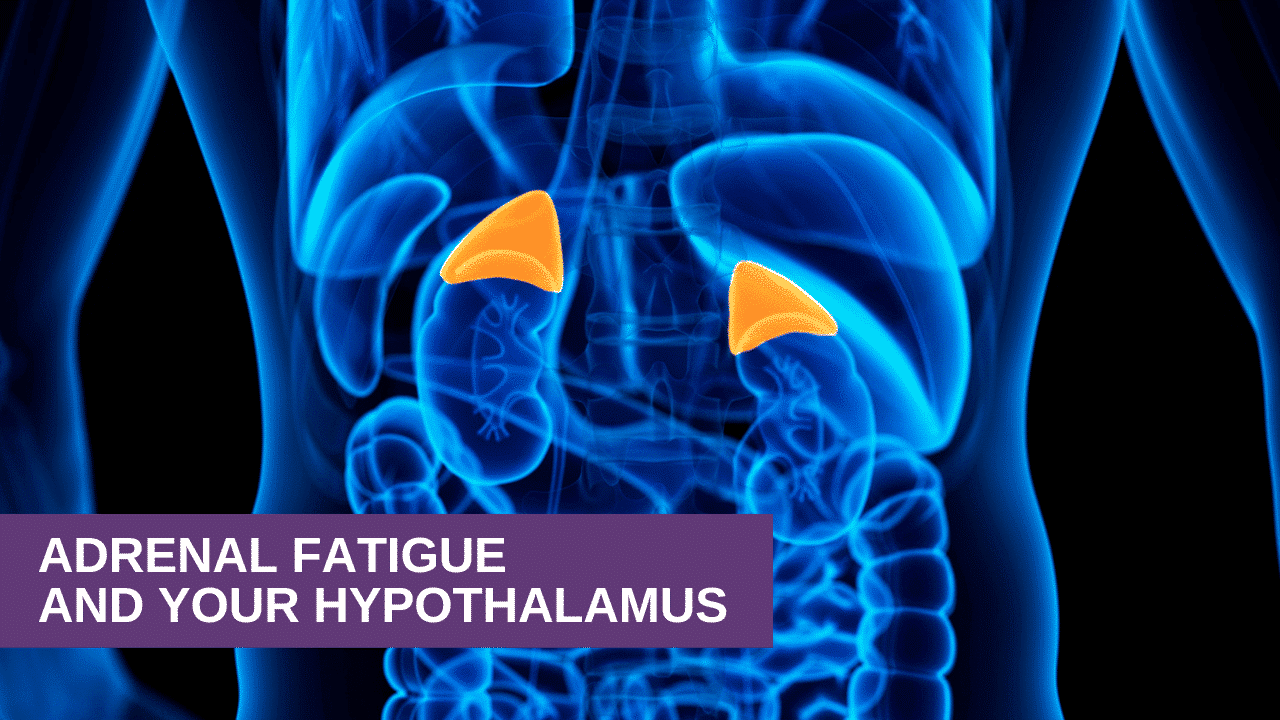Is adrenal fatigue related to hypothalamus dysfunction? Absolutely. Let’s talk about it.
Adrenal fatigue or insufficiency is defined by inadequate production of adrenal hormones. Cortisol, DHEA, aldosterone and pregnenolone.
Adrenal insufficiency affects your energy, your immune system, your glucose metabolism and your ability to heal.
Your hypothalamus directly affects your adrenal function through the HPA axis. The hypothalamic-pituitary-adrenal axis is a negative feedback system between the master controller – your hypothalamus and your adrenal glands. Therefore, if your hypothalamus is dysfunctional, your adrenal function will be abnormal.
Adrenal fatigue is not an accepted medical diagnosis. After long periods of stress, there is a belief that the adrenal glands get worn out. Some patients misdiagnosed with adrenal fatigue actually have postural orthostatic tachycardia syndrome (POTS). A surprisingly common condition where your heart races, your blood pressure lowers and you have no energy. POTS can be rooted in hypothalamus dysfunction.
Normal adrenal production of cortisol is high from 8am to 2pm, with spikes after eating and during intense activity. On the other hand, it drops in the natural late afternoon and surges slightly at dinner time with very low production at night.
For example, in my practice, I see stressed out, hormonally challenged people whose adrenal function is not circadian.
Firstly, they use caffeine and sugar to keep their energy up in the afternoon which stimulates adrenal cortisol production. This doesn’t allow for normal rest. Secondly, they don’t have the best sleep habits so they continue to stimulate adrenal cortisol production at night with too much screen time. They watch fearful news and stress themselves out.
Your adrenals are meant to function for your lifetime and naturally fade with old age. In short, we are not meant to live with constant stress, work long hours with no rest. Stress reactions are learned behaviors and can be modified but it takes practice.
When you support optimal hypothalamus function with Genesis Gold®, it helps to preserve healthy HPA axis and adrenal function. If you would like to learn more, please join me in our free Hormone Reboot Training.



Hello Deborah I’m wanting to know does the hypothalamus also effect low libido n menopausal women
Your hypothalamus orchestrates your entire symphony of hormones.
While testosterone drives men’s libidos, most women are estrogen dependent. During your reproductive years, your testosterone rises only when your estrogen falls – right before ovulation– inducing a surge in your drive to reproduce. Yet we women are sexual beings all month long.
It’s estrogen that fuels our sex dreams. Estrogen fuels our sense of smell which is why women are attracted to their mates’ odor. If he doesn’t smell enticing to you anymore and it’s not his hygiene, it could be your lower estrogen levels. Estrogen helps women feel sensual and increases the receptivity of their erogenous zones.
Menopause testosterone actually rises as estrogen levels fall. So I like to focus on my patients’ estrogen levels to raise their sex drive. And progesterone is needed to upregulate estrogen receptors.
You can learn how to raise your libido, keep your vagina healthy, and have amazing sex after menopause here https://genesisgold.com/menopause/foreplay-and-menopause/